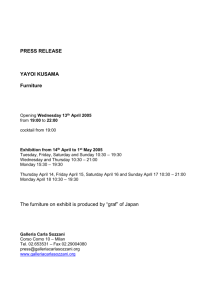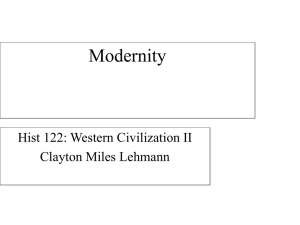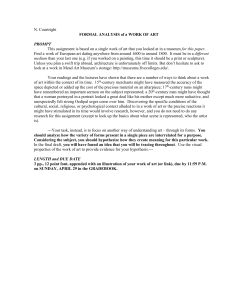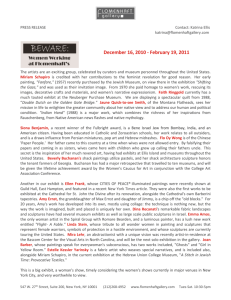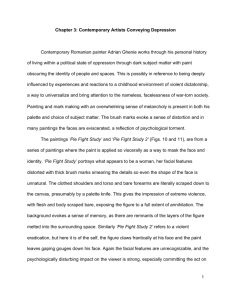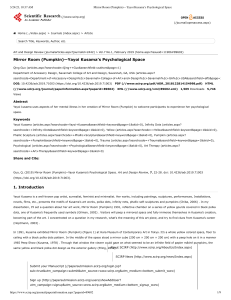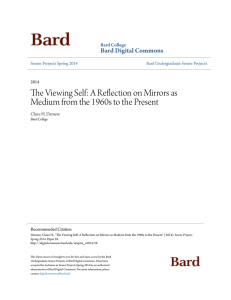Yayoi Kusama - Galleria Carla Sozzani
advertisement
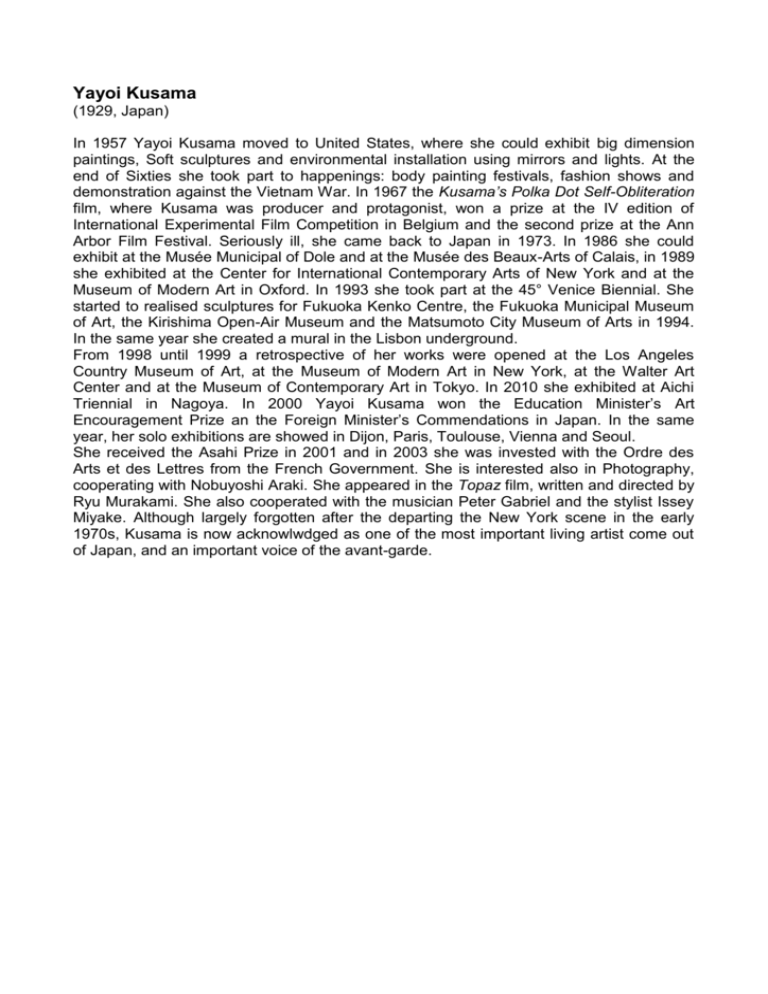
Yayoi Kusama (1929, Japan) In 1957 Yayoi Kusama moved to United States, where she could exhibit big dimension paintings, Soft sculptures and environmental installation using mirrors and lights. At the end of Sixties she took part to happenings: body painting festivals, fashion shows and demonstration against the Vietnam War. In 1967 the Kusama’s Polka Dot Self-Obliteration film, where Kusama was producer and protagonist, won a prize at the IV edition of International Experimental Film Competition in Belgium and the second prize at the Ann Arbor Film Festival. Seriously ill, she came back to Japan in 1973. In 1986 she could exhibit at the Musée Municipal of Dole and at the Musée des Beaux-Arts of Calais, in 1989 she exhibited at the Center for International Contemporary Arts of New York and at the Museum of Modern Art in Oxford. In 1993 she took part at the 45° Venice Biennial. She started to realised sculptures for Fukuoka Kenko Centre, the Fukuoka Municipal Museum of Art, the Kirishima Open-Air Museum and the Matsumoto City Museum of Arts in 1994. In the same year she created a mural in the Lisbon underground. From 1998 until 1999 a retrospective of her works were opened at the Los Angeles Country Museum of Art, at the Museum of Modern Art in New York, at the Walter Art Center and at the Museum of Contemporary Art in Tokyo. In 2010 she exhibited at Aichi Triennial in Nagoya. In 2000 Yayoi Kusama won the Education Minister’s Art Encouragement Prize an the Foreign Minister’s Commendations in Japan. In the same year, her solo exhibitions are showed in Dijon, Paris, Toulouse, Vienna and Seoul. She received the Asahi Prize in 2001 and in 2003 she was invested with the Ordre des Arts et des Lettres from the French Government. She is interested also in Photography, cooperating with Nobuyoshi Araki. She appeared in the Topaz film, written and directed by Ryu Murakami. She also cooperated with the musician Peter Gabriel and the stylist Issey Miyake. Although largely forgotten after the departing the New York scene in the early 1970s, Kusama is now acknowlwdged as one of the most important living artist come out of Japan, and an important voice of the avant-garde.
